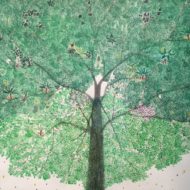Yesterday I gave a talk at the Center for Journalism Studies at Ghent University about how Actor-Network Theory (ANT) and digital methods can be used to study and inform data journalism. I will be using these approaches to study data journalism in my joint PhD with the University of Groningen and the University of Ghent. …
Category Archives: Social media
Slides from Talk on Digital Methods for Journalism at Columbia University
Last month Jonathan Gray and I gave a talk at Columbia University entitled ‘Mapping Issues with the Web: An Introduction to Digital Methods’. We talked about how Bruno Latour’s work on Actor-Network Theory has informed social and cultural research that uses online data and digital methods, with examples from the work of the Digital Methods Initiative at the …
Continue reading “Slides from Talk on Digital Methods for Journalism at Columbia University”
Talk at Columbia University in New York on Issue Mapping for Journalism
Next week I will be giving a talk at Columbia University in New York together with Jonathan Gray, lead editor of the Data Journalism Handbook. This talk will bring together for the first time two activities that I have been doing in parallel for the past couple of years, namely the work with journalists to develop …
Continue reading “Talk at Columbia University in New York on Issue Mapping for Journalism”
What Data Journalists Can Learn From New Media Research
Earlier this month I wrote an article for the London School of Economics Impact of Social Sciences blog about how journalists can use the web and social media as a source of data about the state of issues, debates and information flows in different societies. You can read the full post here.
Amazon as a Research Engine: Best Selling Issues in the Climate Change Debate
My colleagues at the Digital Methods Initiative (Erik Borra, Natalia Sanchez-Querubin and Sophie Waterloo) and I just submitted an abstract for a social media theory and methods conference featuring great names in this space: Jean Burgess (Queensland University of Technology), Axel Bruns (Queensland University of Technology), Greg Elmer (Ryerson University) and Ganaele Langlois (U. of …
Continue reading “Amazon as a Research Engine: Best Selling Issues in the Climate Change Debate”
Top 10 Most Tweeted Links from NICAR 2013
The annual US National Institute for Computer Assisted Reporting (NICAR) conference brings together hundreds of some of the most experienced data journalists, mainly US-based, and is packed with sessions where you can learn about the latest developments, tools and techniques in the field. Since I didn’t make it to NICAR last week, I followed the …
Continue reading “Top 10 Most Tweeted Links from NICAR 2013”
Social Network Sites as Stages of ‘Dramaturgical Performance’ – Interpretation Sketch
A study of the University of Georgia describes as more likely to be narcissist those Facebook users who have a large number of friends and wallposts, narcissism in this case being defined as an emphasis on self-promotion and quantity of friends. The use of Facebook to emphasize self-promotion, that is considered to be narcissism in …
Control Rates in User Generated Content: PoliticalBase.com, the Moderated Political Wikipedia
Technological developments, resulting in free user-friendly interface applications, led to the second step in the evolution of the World Wide Web, the Web 2.0. The Web 2.0 reflects a paradigm shift, from the “read web”, another platform of mass communication, whose advantages over the traditional media were in terms of functionality: better storage of large …
PICNIC 08 – “Homophily Can Make You Stupid” by Ethan Zuckerman
In a presentation given yesterday at Picnic for the Bloggers Lab, organized by the European Journalism Centre, Ethan Zuckerman brought up an interesting concept that has quite remotely been discussed over the internet for a while now. Today we are all enjoying this second step of the web evolution, the web 2.0, a read/write space …
Continue reading “PICNIC 08 – “Homophily Can Make You Stupid” by Ethan Zuckerman”
Secondary Orality in Microblogging
Orality versus literacy in the history of human consciousness In the book “Orality and Literacy: the Technologizing of the World”, Walter Ong compares orality and literacy, as defining features of oral cultures (cultures which do not have a system of writing), and “chirographic” cultures respectively (the ones who use alphabetic writing systems). He analyzes the …
